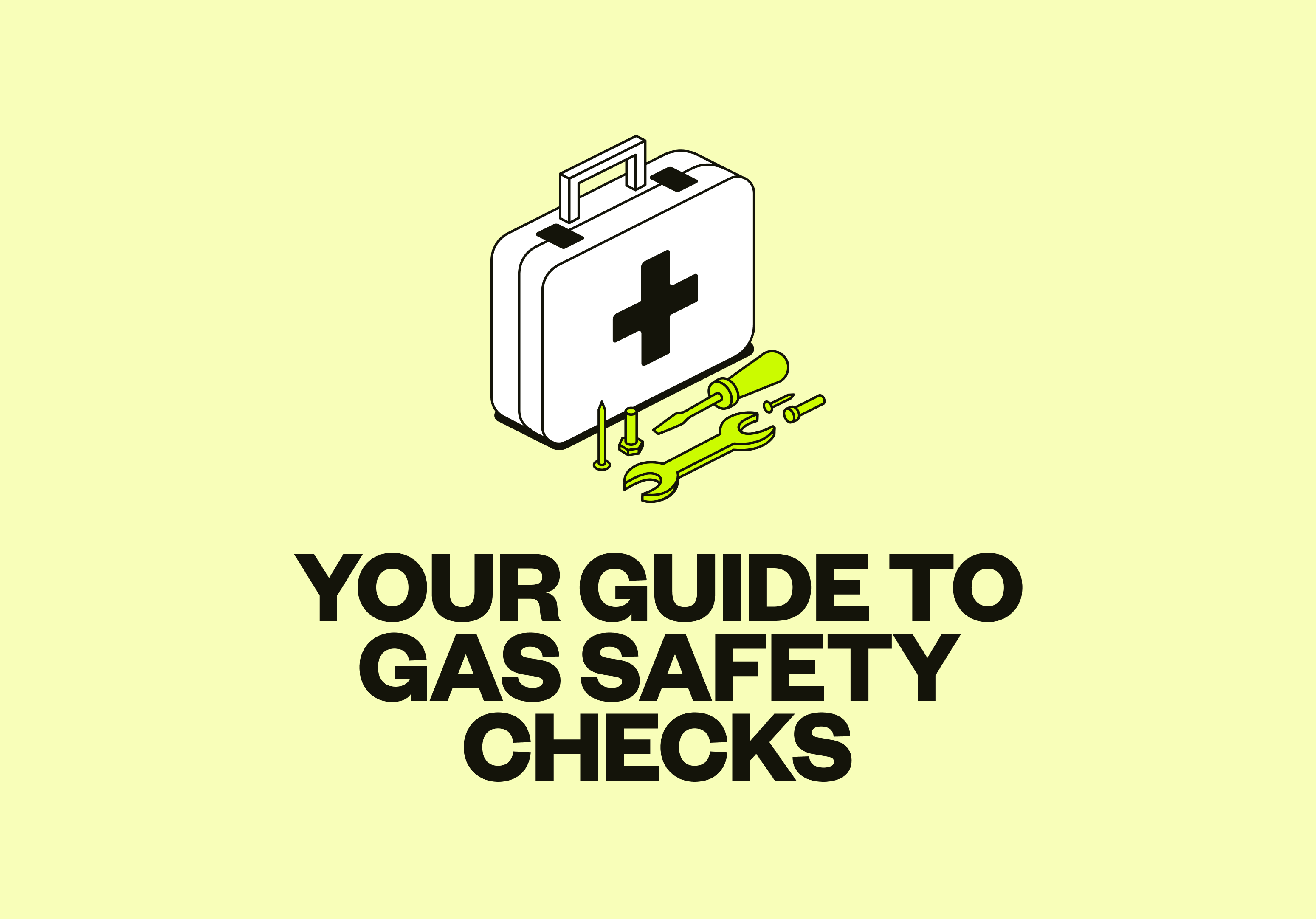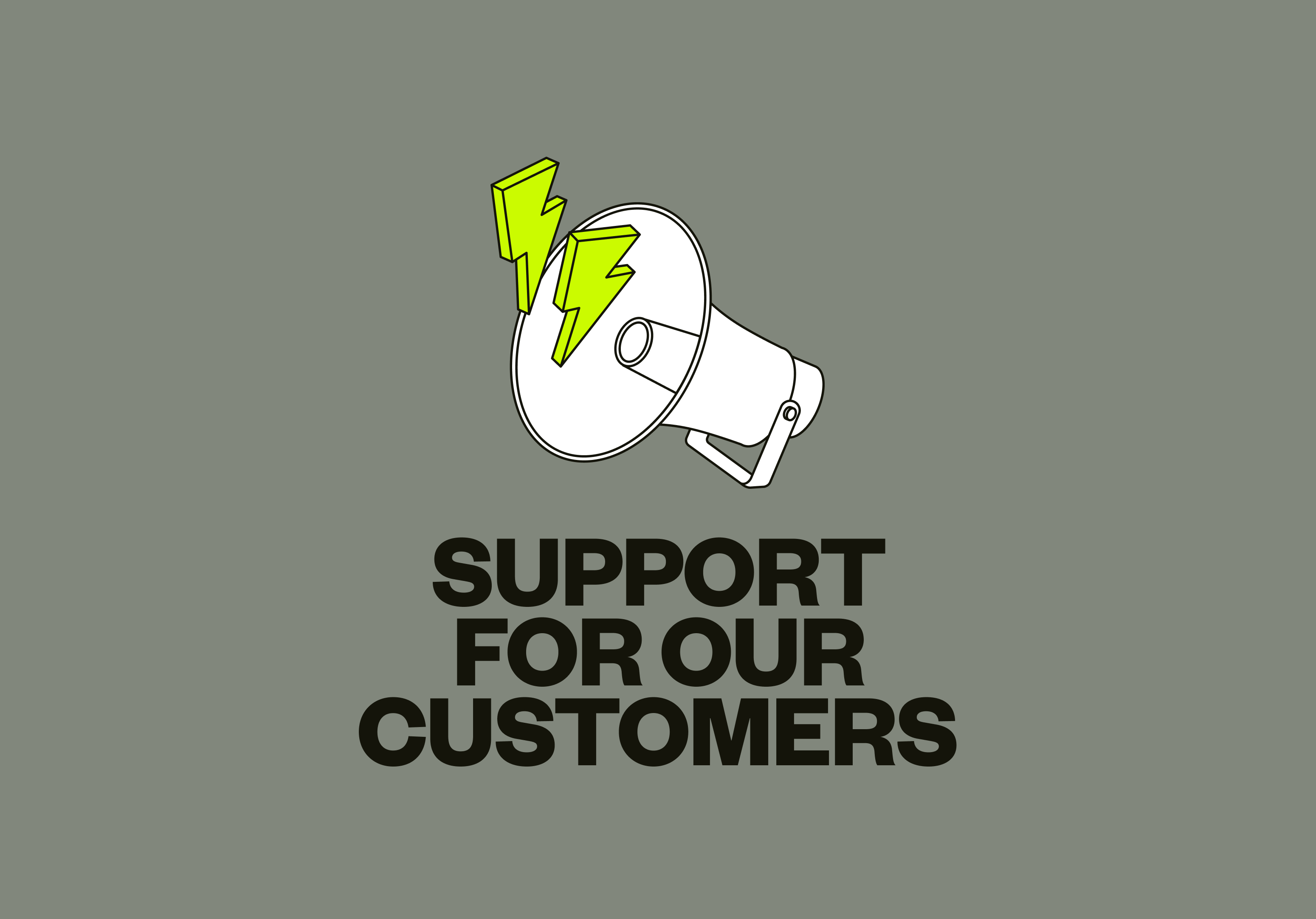August 2025
Your Guide to Gas Safety Checks
Learn how to spot a gas leak and what to do about it. Plus, appliance servicing and booking gas safety checks.

Gas appliances are common in many homes, but if they’re not properly maintained, they may leak carbon monoxide (CO). Carbon monoxide is a poisonous, odourless, colourless and tasteless gas, so it’s essential to know how to prevent a gas leak, recognise when something's not right and what to do about it.
Staying safe is easy when you take the right precautions. Performing basic safety checks and having a registered engineer service your appliances will help minimise the risk of gas leaks. Below, we’ve detailed what a Gas Safety Check is, why it needs to be conducted by a registered engineer, how to keep gas appliances safe and how to recognise and respond to a gas leak.
What is a Gas Safety Check and why is it important?
Checking gas appliances regularly helps to prevent gas leaks and stop carbon monoxide from being released into your home.
If you're a homeowner, we recommend booking a Gas Safe-registered engineer yearly to carry out a Gas Safety Check. The engineer will service all gas appliances by examining the safety and efficiency of any flue, the combustion air supply, the appliance's operating pressure and/or heat input, and ensuring that it operates safely.
If you live in rented accommodation, it's your landlord's legal responsibility to arrange and pay for an annual Gas Safety Check. This applies to private, council and housing association landlords.
The Gas Safety Check Certificate is valid for 12 months, and you can find a registered engineer in your area here.
How much does a Gas Safety Check cost?
Prices for a Gas Safety Check can vary depending on where you live and the number of appliances in your home to be checked. As a guide, Checkatrade prices a Gas Safety Check at around £80 for a home with one gas boiler and one fireplace or gas hob. Assessing additional gas appliances typically costs around £10 per appliance.
Some homeowners are eligible for a free, annual Gas Safety Check. If all four statements below apply to you, you qualify for a free Check, which we can provide.
- You live in your own home
- You haven't had a Check carried out at the premises in the last 12 months
- You're on a means-tested benefit
- Your living situation is either of the following:
· You live with a child under five years old.
· You are old enough to claim a state pension, disabled or chronically sick, and either you live alone, or you live with others who are also old enough to claim a state pension, are disabled, chronically sick or under 18 years old.
If you think you’re eligible for a free Gas Safety Check, please email us via help@so.energy.
Why use an engineer on the Gas Safe Register?
When any work is carried out on or concerning gas appliances and gas fittings, gas operatives should be Gas Safe-registered engineers.
They should hold a valid certificate of competence for the services they provide, which must have been issued under the gas industry's recognised scheme known as The National Accredited Certification Scheme for Individual Gas Fitting Operatives (ACS). The certificate of competence is required by the Health and Safety Commission's Gas Safety (Installation and Use) Regulations (ACoP and Guidance) to register as a gas safe engineer. Engineers should be able to show you their up-to-date Gas Safe ID card.
What to do if an appliance is marked as unsafe to use from a Gas Safety Check?
If an appliance is considered unsafe, the Gas Safe-registered engineer will be able to explain why and record this in legible writing. The engineer can advise on whether to replace the appliance or what to do next, but you mustn’t use it.
How to recognise a carbon monoxide leak
Faulty gas appliances can leak carbon monoxide, a lethal, colourless, tasteless and odourless gas.
Here are the common signs a gas appliance is leaking carbon monoxide:
- Gas flames appear floppy and are orange or yellow (they should be crisp and blue)
- The appliance has sooty stains (or discolouration) on or near it
- Pilot lights frequently blow out
Other signs to look out for include anyone in your household experiencing common symptoms of carbon monoxide poisoning. These include:
- Headache, dizziness or confusion
- Nausea or vomiting
- Feeling weak
- Chest and muscle pain
- Shortness of breath
If you spot any of these symptoms of CO poisoning, or suspect a gas leak:
- Call the National Gas Emergency Service immediately on 0800 111 999. Use a landline or go outdoors to an area where you can't smell gas before you call from a mobile.
- Do not turn light switches on or off, ring doorbells, use mobile phones indoors, or use any other electrical switches – they may cause a spark.
FAQs
What gas safety tips can I follow at home?
Here are some straightforward ways to keep yourself and others living with you safe and prevent the likelihood of gas leaks:
- If you think a gas appliance isn't working properly, don't use it.
- Never cover or block outside flues, ventilation bricks or grilles.
- Service your gas appliances at least once a year by an engineer on the Gas Safe Register.
- Fit a carbon monoxide detector, but use it as a guide only. Don't rely on the detector completely; learn to identify the signs of a carbon monoxide leak.
- Turn off all gas appliances, then check if the pilot light on your boiler has gone out. If the pilot light is still on, and all your gas appliances are off, there may be a gas leak.
What are the benefits of fitting a carbon monoxide alarm?
We strongly recommend fitting an audible carbon monoxide (CO) detector in your home. Audible detectors alert you to CO in the air and can be lifesaving, particularly when you're asleep and may not be aware of early symptoms of CO poisoning.
Before buying a CO alarm, make sure it complies with British Standard EN 50291 and carries a British or European approval mark, such as a Kitemark.
CO detectors should be installed, checked, and serviced, following the manufacturer's instructions. A Gas Safe-registered engineer can install and maintain the detector, but don’t completely rely on it. Recognising the signs of dangerous CO in the air is essential to keep you and others in your home safe from CO poisoning.







